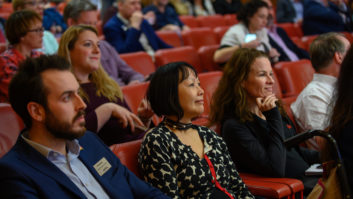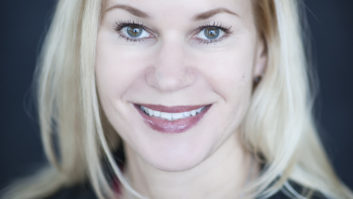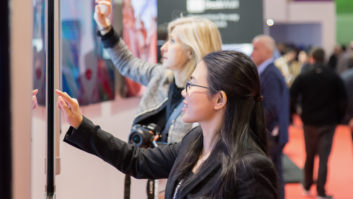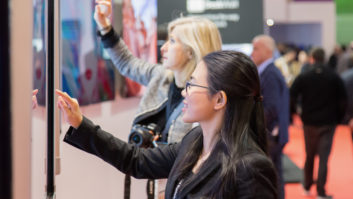
The subject of gender diversity in the AV industry is one that prompts an interesting and often contentious reaction, depending on who you speak with.
In the latest issue of AV Technology Europe magazine – out next week, sign up here – we’ve taken a closer look at the subject, speaking to a number of leading figures in the AV industry – both male and female – from the likes of Crestron, NEC, Sharp, WAVE, AVIXA, ISE and more.
Such are the thoughts on the diversity, some personnel that we approached – who shall remain nameless – all but dismissed the subject entirely branding it as “non-issue” and even warning us off from approaching it all.
Regardless where you sit on the subject, the bottom line is that the gap exists, not just in AV, but the tech industry as a whole.
“I have definitely seen more women at management level which is fantastic. Having said that, as a whole, women are still in the minority”
During discussions with those that were willing, we covered a number of different topics, including; where the problem originates from, ways of addressing the imbalance, efforts from the industry, attitudes towards women, the need for role models and improvements being seen today.
Some examples of sexism experienced by women working in the AV industry today were quite shocking.
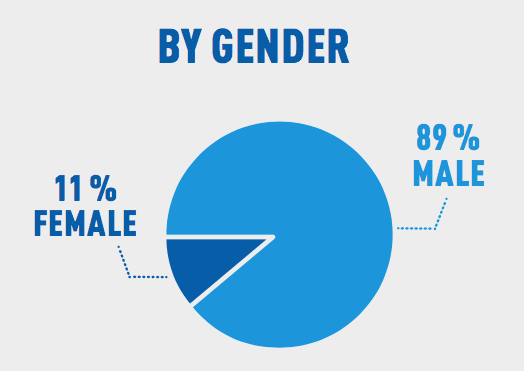
“I have been in the Av industry for about 18 years and I have always found the industry to be very very male dominated”
Recent figures released by ISE following the ISE 2018 trade show in Amsterdam, revealed just 11 per cent of the 80,000-plus attendees were female. Whilst low, it’s seen a considerable rise compared to five years ago, with the figure less than half, at around five percent.
Ahead of the magazine being published – here’s a taste of what to expect, with the views from Birgit Jackson, commercial director visual solutions at Sharp and Petra Van Meeuwen, marketing manager at Crestron.
When it comes to gender, what are your observations of the AV industry?
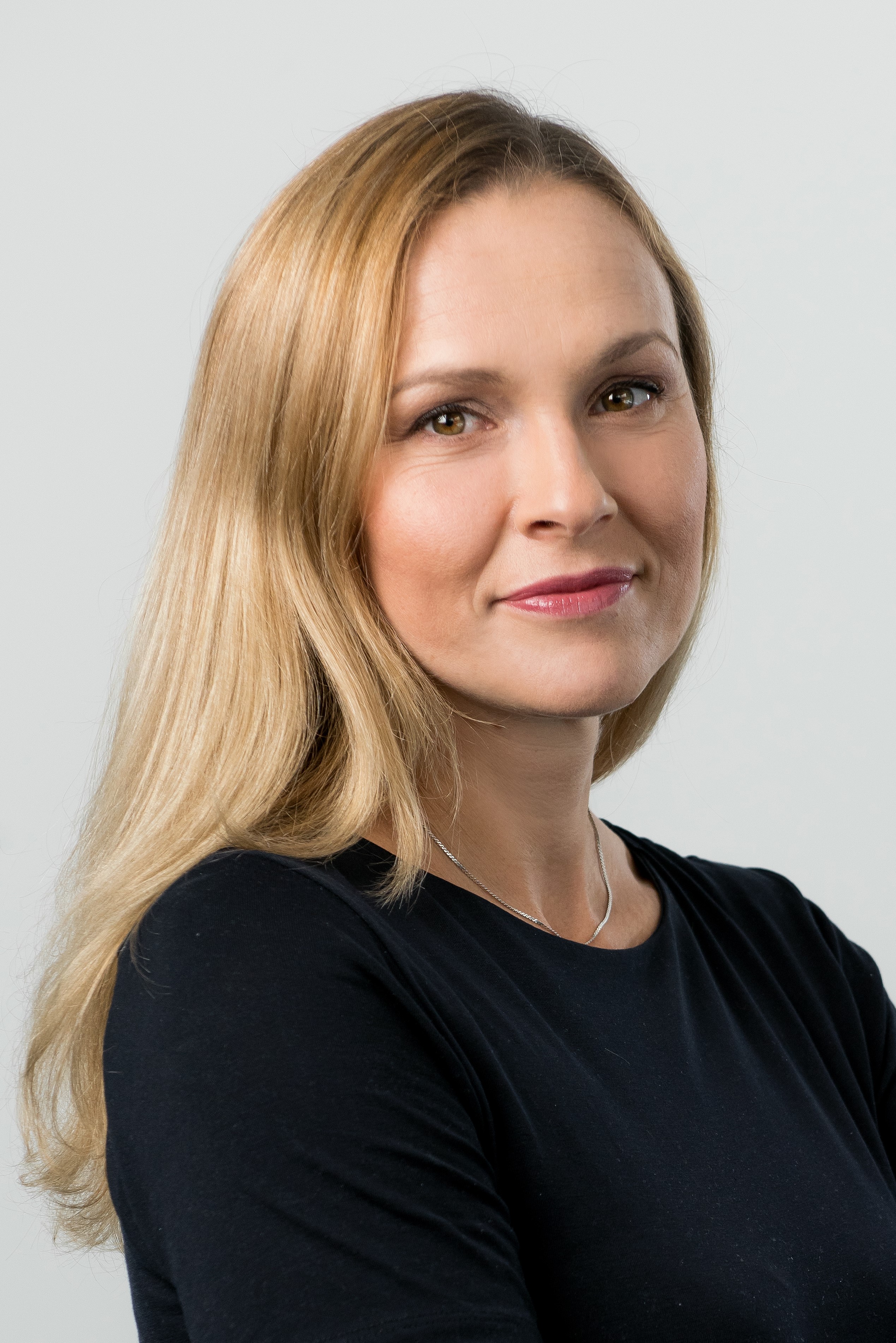
Jackson: The industry is changing; in the past couple of years I have definitely seen more women at management level which is fantastic. Having said that, as a whole, women are still in the minority. Although this does depend on which part of the industry you’re looking at. There are many women in areas like marketing for example, but more technical areas continue to be dominated by men. I would also say the disparity becomes more noticeable when you consider senior roles. The higher up you go, the less women there are – which is something we see reflected across most industries. The good news is that the industry is working hard to address this, at Sharp we already have a number of initiatives in place that aim to support women working at the company to progress.
Van Meeuwen: I have been in the Av industry for about 18 years and I have always found the industry to be very very male dominated. Most female roles seem to be in the ‘back office’ i.e admin/marketing and PR jobs. But when it comes to the customer facing roles i.e sales/technical or the customer base i.e decision making end users, you more often are confronted with men.
We need to make changes overall in society starting with providing easier and affordable child care for mothers who had blooming careers but had to put this on hold to raise the kids. This is what happens in Belgium for example (my home country) so that women can take up their jobs again after maternity leave. But it doesn’t just stop there, it is much broader in my view and we need to see women as equal in the work force as men. In fact, and without sounding feminist here, which I am not, women are often more stress resistant as they are used to doing many tasks at the same time i.e combining motherhood with work.

Why do you personally think there are so few females (by comparison to males) working in the AV industry today?
Jackson: For a start, AV is part of the technology industry, which currently attracts more men than women. I studied physics at university, which is the perfect basis for understanding technology and technical concepts, but the majority of people on my course were men because women tend not to gravitate toward these kinds of subjects. Whether this is driven by cultural factors or individual women being less interested in science and technology, it still has the same end result: less women pursuing a career in a technical industry or field.
The number of women in the AV industry, and in particular in senior positions, also varies by country. It very much depends on how good the support is for working mums – is it a country where childcare is available and affordable? Culturally, are flexible working arrangements or flexible working hours acceptable? I find the UK quite good for this and have found Sharp to be great for flexible working. But in places like Scandinavia for example having a good work/life balance in general is very important, which makes it easier and more acceptable for both men and women to take some time off for their families.
Van Meeuwen: It’s not an easy question to answer. A wrong perception perhaps that AV is a more male ‘sector’? Old school of thinking? I’m not sure, there are likely to be many different factors.

Has this changed during your career?
Jackson: The flexibility of working environments has improved massively, which makes it far easier for women to work and progress within the AV industry. When I first started flexible working wasn’t really a ‘thing’. It was certainly something I had to push for with some employers, although many companies I have worked for have been very open to it.
Overall my experience in the AV industry has been very positive. I find that companies do value women and can see that the business will be more successful when they have senior women, as well as men, on board. They recognise the advantages of diverse, mixed teams and understand that these are the teams that get better outcomes.
I think some women, especially those who are put in a position of responsibility, still feel like they have to work harder to prove they can do as good a job. Flexible working hours, good childcare, the same salaries and an open mind are absolutely vital for attracting more women to the industry.
Van Meeuwen: Very little has changed over the past 18 years that I have been working in the AV industry. I am hopeful though things will change and improved with initiatives such as WAVE.
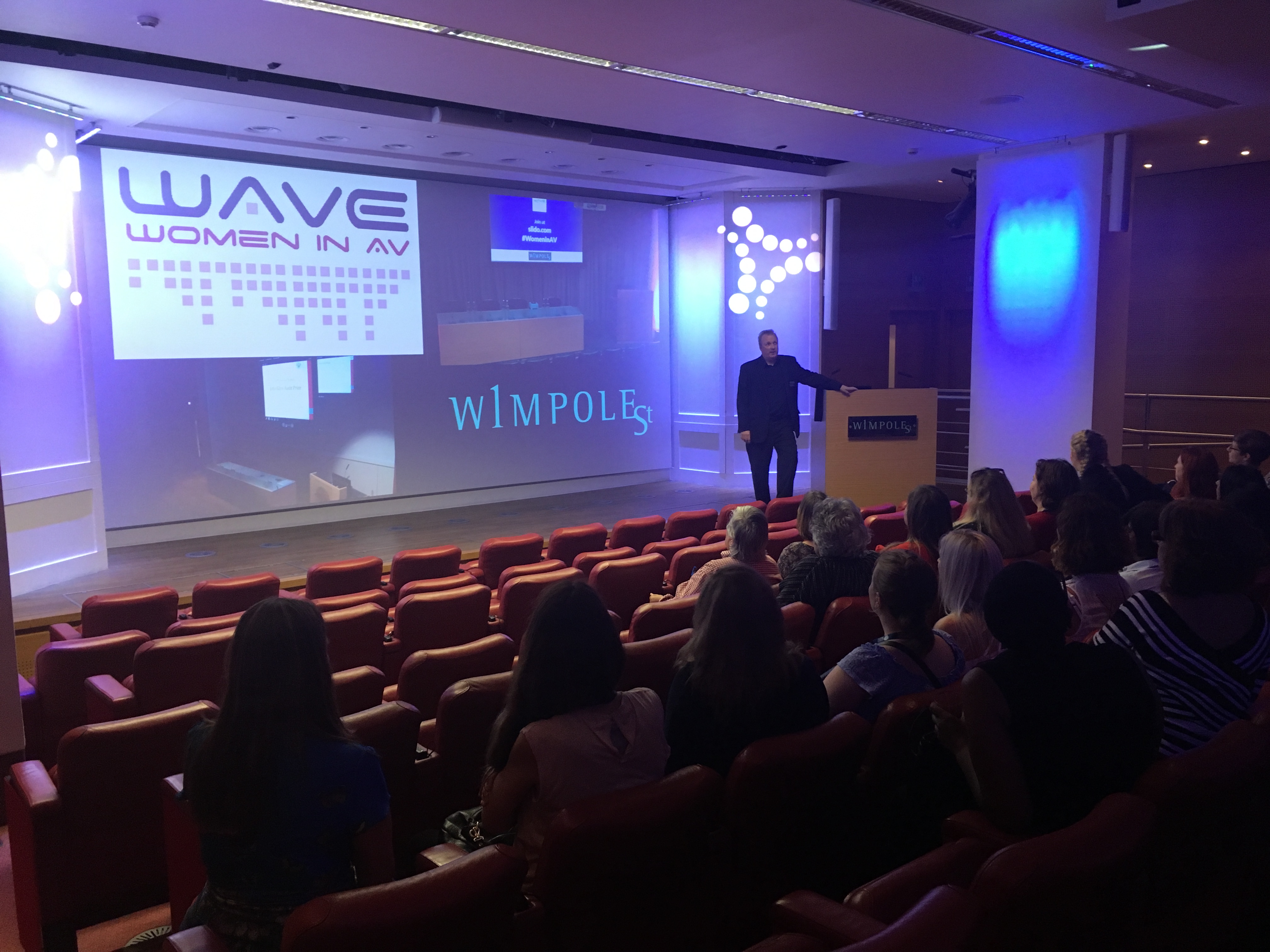
Where do you think the problem originates?
Jackson: A lot of young women today, and also my generation, are well educated. We went to universities and performed just as well as our male counterparts. But we don’t see as many women studying science, technology or engineering subjects, which has a direct impact on the diversity of various industries. This is changing, but a key driver of gender diversity will be attracting young women to these fields in the first place. Having female role models does make a difference. My daughter for example is really interested in science – she talks about being an astronaut.
Where I think we lose ground in our careers is when we start a family. That was certainly the case for me, my career didn’t change for around ten years after I had children. There is more of an expectation socially that a woman will sacrifice her job in order to be there for the family.
To be honest, it is hard to balance both family and career. Socially we are less rewarded for having a career. In my opinion, men are usually quite proud of their job and what they achieve and how many hours they work, but historically this has been more difficult for women to express. Of course this has changed hugely over the years, it’s now much more accepted that women will also be confident and proud of their achievements and role outside of the family.
“Do employers still prefer men in highly paid positions? It is an interesting debate that doesn’t just apply to the AV industry but I see it around me”
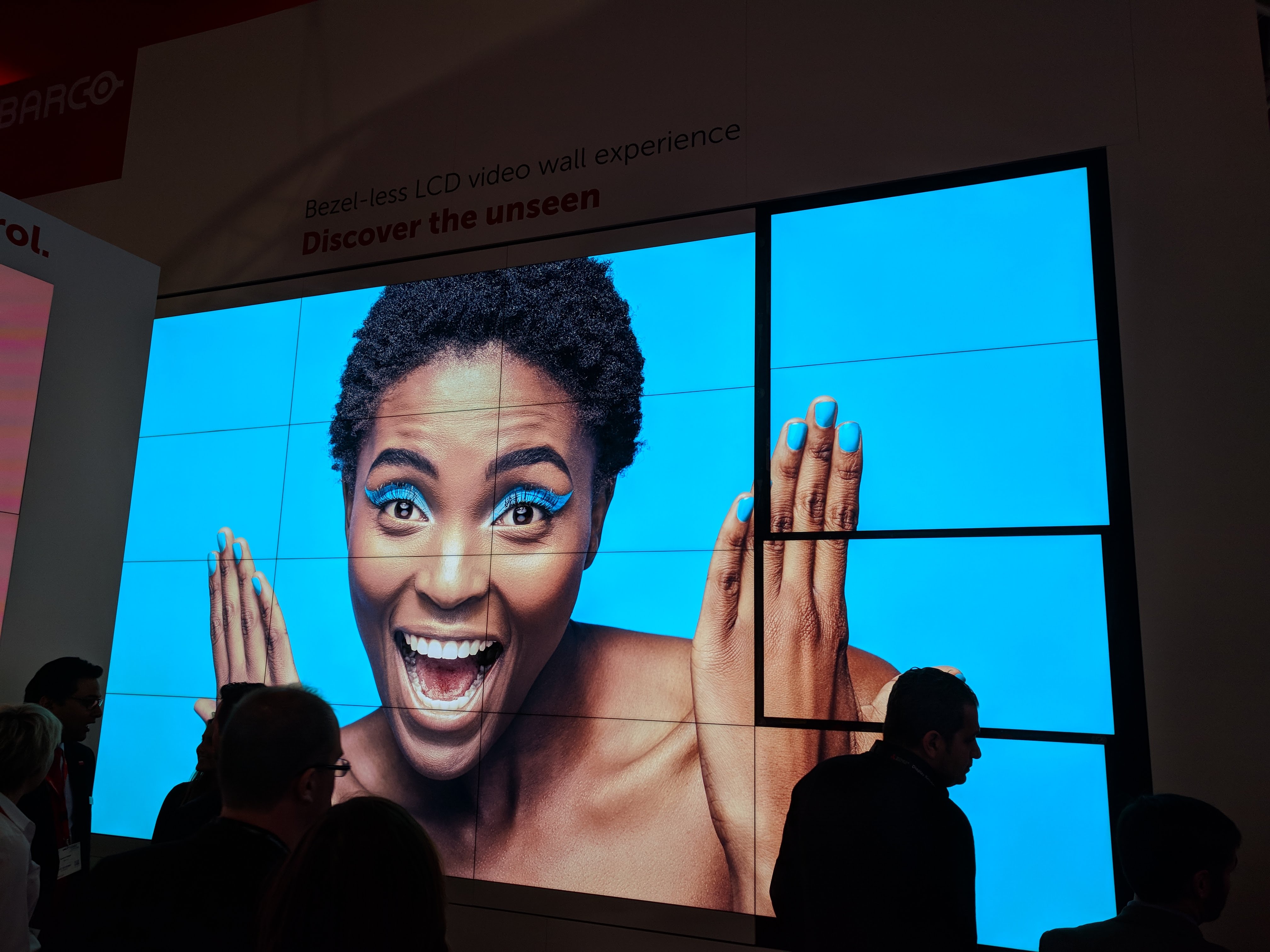
Van Meeuwen: We are still in a society that is stuck in the thought that women should look after kids and men provide the bread. It is in my opinion a cultural/historic problem. I am not saying men should start taking over the ‘mother’ role but I do feel that women have ‘less choice’ when they choose to have a career and kids. It shouldn’t have to be a choice. And women must be financially independent – that is what my mother always advised me and I encourage my kids too. Having said this is not the easy option to combine both but certainly possible. Do employers still prefer men in highly paid positions? It is an interesting debate that doesn’t just apply to the AV industry but I see it around me.
We recently discussed the subject with ISE MD Mike Blackman, who suggests there is still a perception that AV is an industry for males, rather than women. What do you think?
Jackson: Look at ISE and the percentage of male senior customers and attendees, they are still the majority. But what’s fantastic is that the AV industry is also very open for women who want to enter it. In fact, I’d say the industry is actively trying to recruit more women. That’s certainly the case at Sharp; we know that having too few women at an organisational level means missing out on a wider pool of talent and we are working to make Sharp a place where more women want to work.
It’s also a great time to enter the industry. AV is growing – it used to be a very small industry where everyone knew everyone, but that’s now changing. The industry is growing and evolving, meaning there’s never been a better time to be proactive about attracting new, diverse talent.
Personally, I have always received positive feedback and respect for the job that I do and I think there is so much room for young women to grow within the industry. I would love to have more engaged young women in my team to help drive the industry forward.

Van Meeuwen: Yes, as mentioned before, I think it is not just a perception but a fact. The back end roles are often done by women but when it comes to the decision making jobs, I see more men than women(:
At Crestron though I can say that this is not the case and I can say that the board of directors comprised of more women than men.
To read full and extensive coverage on the subject of gender diversity in the upcoming issue of AVTE magazine, please sign up to receive your complimentary copy (in digital and print) today. Click here for details.


